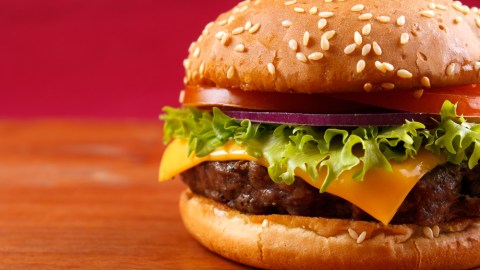Would You Eat Synthetic Meat?
Using stem cells extracted from two separate cows, researchers in Germany have created the world’s first synthetic beef. The stringy protein was grown in laboratory conditions.

Sign up for Big Think on Substack
The most surprising and impactful new stories delivered to your inbox every week, for free.
What’s the Latest Development?
Using stem cells extracted from two separate cows, researchers in Germany have created the world’s first synthetic beef. The stringy protein was grown in laboratory conditions and required no animals to be slaughtered. “Dr Mark Post…used these cells to grow 20,000 muscle fibres in individual culture wells, each one a tiny hoop of greyish-white protein suspended in a gel-like growth medium that contained antibiotics and a serum extracted from cow foetuses.” The individual fibers were then pressed together, colored with beetroot juice and mixed with saffron, breadcrumbs and some binding ingredients to form a burger.
What’s the Big Idea?
Funded by Google’s co-creator Sergey Brin, the synthetic protein may pose a solution to vexing questions about the globe’s expanding population and its increasing appetite for animal protein. “By 2060, the human population is predicted to rise to 9.5 billion and, with a rising demand for meat from rapidly developing populations in, for example, China and India, the market in meat is expected to double by the middle of the century. If the amount of meat we produce doubles, livestock could be responsible for half as much climate impact as all the world’s cars, lorries and aircraft.”
Photo credit: Shutterstock.com
Sign up for Big Think on Substack
The most surprising and impactful new stories delivered to your inbox every week, for free.




